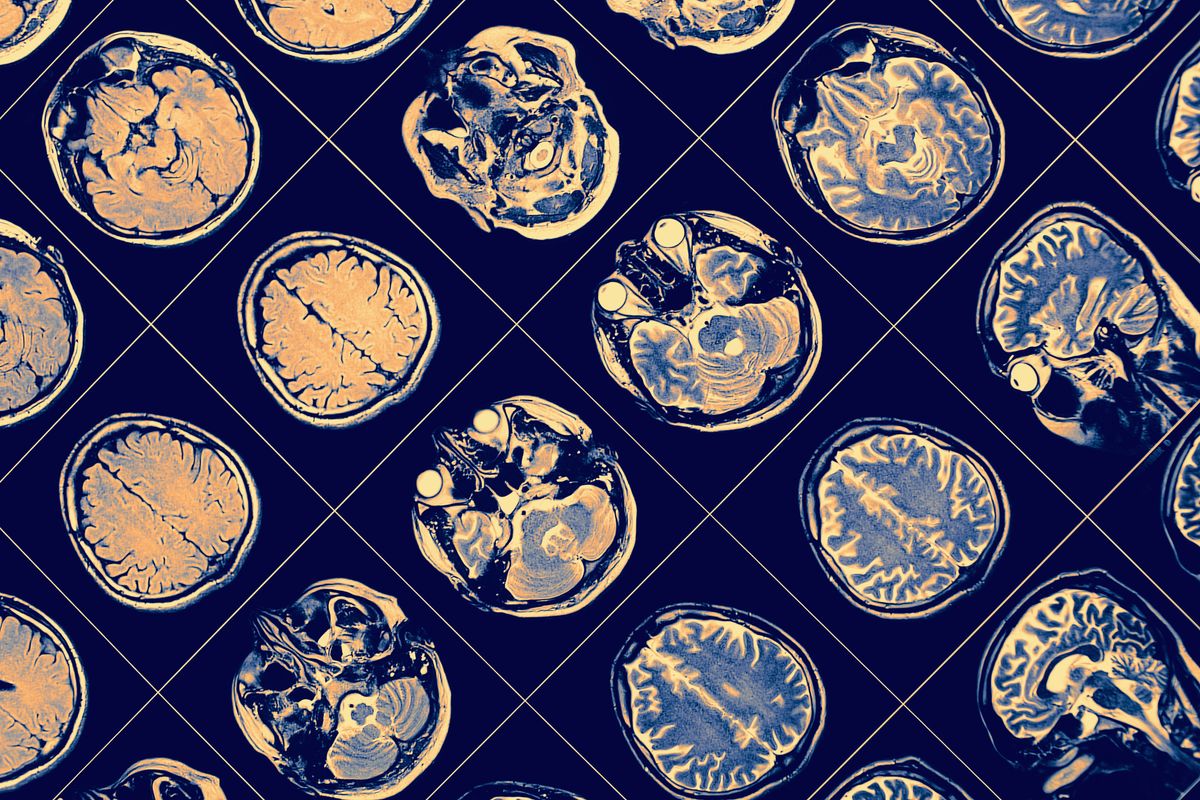Schizophrenia may be one of the biggest risk factors for dying from COVID-19, second only to age, according to a new study.
Previous studies have found that people with mental illness, particularly depression and schizophrenia – a condition that causes distortions in thinking and perception – had an increased risk of becoming infected with SARS-CoV-2, the virus that causes COVID-19. But it was not known whether mental disorders were also associated with the risk of death from COVID-19.
In the new study, the researchers analyzed the health records of 260 outpatient clinics and four hospitals across New York City, based on data published by the New York University electronic health record; Of the 26,540 patients tested (about 4,500 patients were excluded for various reasons), 7,348 adults tested positive for COVID-19 between March 3 and May 31.
Related: 20 of the worst epidemics and pandemics in history
They then divided patients with a reported psychiatric disorder into one of three categories – schizophrenia spectrum, mood disorder or anxiety disorder – and compared them with COVID-19 patients who were not diagnosed with any psychiatric disorder. They adjusted their findings to gender, age, race and known risk factors for COVID-19: high blood pressure, diabetes, heart problems, chronic obstructive pulmonary disease, chronic kidney disease, smoking and cancer.
Of the more than 7,000 adults who tested positive for coronavirus during that period, 75 patients had a history of schizophrenia; 564 had a history of mood disorder; and 360 had a history of anxiety disorder. Overall, 864 of COVID-19 patients died or were discharged to hospice within 45 days of their diagnosis.
The researchers found no association between anxiety or mood disorders and death from COVID-19. But they found that people with schizophrenia were about 2.7 times more likely to die from COVID-19 than people without this mental disorder – the second biggest risk factor after age.
In comparison, patients aged 45 to 54 were 3.9 times more likely to die from COVID-19 than younger patients (and that risk doubled every 10 years of age after 54), regardless of whether they had a mental disorder. Patients with heart failure or diabetes had a 1.65 and 1.28 times greater risk of dying from COVID-19, respectively.
Expected but surprising
But why would a mental illness be associated with the risk of dying from COVID-19?
“It is expected, but also surprising,” said senior author Dr. Donald Goff, professor of psychiatry at the NYU School of Medicine. Research has shown that people with schizophrenia have shortened life expectancy by up to 20 years, on average; and many die earlier from pneumonia and viral diseases, he said.
But this decrease in life expectancy was thought to be primarily a reflection of other medical risk factors and behaviors that normally accompany schizophrenia, including obesity, heart disease and smoking. In this study, people with schizophrenia still had a higher risk of mortality, although the authors adjusted for these conditions.
“It looked like there was something about schizophrenia disease or possibly the drugs that made them run a really high risk of mortality,” Goff told Live Science. For example, perhaps the disease or drugs are disturbing the Imune system, he said. Previous research has found that people with schizophrenia may have altered immune responses and variations in the genes that regulate the body’s immune response to infections.
“This is a highly interesting study, especially with regard to the role of the immune system,” said Dr. Norbert Müller, professor of psychiatry at Ludwig Maximilian University in Munich, Germany, who was not involved in the study. Some psychiatrists speculate that schizophrenia is associated with the activation of the immune system and pro-inflammatory signaling molecules known as cytokines, he said. A common cause of death for COVID-19 is an overreaction of these cytokines, also known as a cytokine storm.
“This mechanism may also play a role in schizophrenia and be a common pathway for schizophrenia and a fatal course in COVID-19,” Müller told Live Science. But the genes that instruct and regulate the immune response may also play a role, he added. Still, the study was limited by the low number of patients with schizophrenia, he said, and also by the lack of data on patients’ psychosis medications (which the authors also mention).
In addition, the data included only patients who had access to treatment in the NYU healthcare system, and were collected during the peak of the outbreak in New York City, when most high-risk, symptomatic people were being tested.
“There were such high rates, and the whole system was close to being overloaded and the treatments were not as effective as the treatments are now,” said Goff. Since then, “absolute death rates have dropped across the board, but we think it is more likely that people with schizophrenia are at greater risk.”
Goff and his team are now conducting more research to find out if there is a biological reason why patients with schizophrenia may be at a higher risk. But for now, “we thought it was important to draw people’s attention to this,” said Goff. People with schizophrenia should be among those “prioritized for vaccines,” he added.
The results were published on January 27 in the newspaper JAMA Psychiatry.
Originally published on Live Science.
